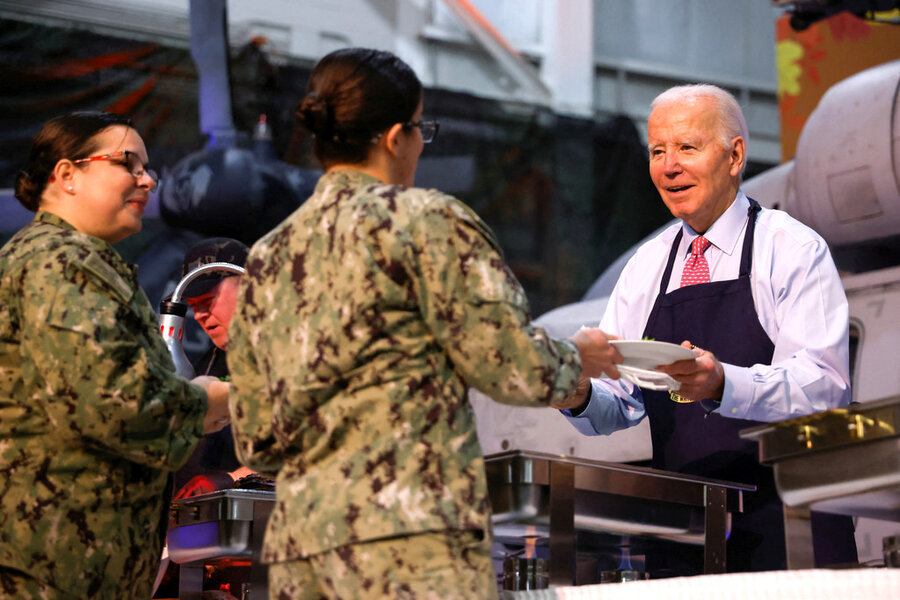Thanksgiving unity during a divisive war
Loading...
When wars break out in distant lands, it is natural to care for the innocent people put in harm’s way. Such caring has risen dramatically during the war between Israel and Hamas in Gaza. Some favor concern for Israelis, others for Palestinians. Yet others reach for a higher practice of care, rooted in the tenets of religious faith.
At a church in Palo Alto, California, for example, local rabbis, imams, and clergy from other religious traditions gathered Nov. 11 for a prayer vigil in response to the war, but aimed at healing divides in their own community. “We’ve grieved together, we’ve wondered what we might bear witness to during this very difficult time,” the Rev. Eileen Altman, associate pastor at the city’s First Congregational Church, told the Palo Alto Weekly.
“We felt like, even if we don’t quite know what to say yet, we know we want to pray together for peace. We want to sing together, we want to pray together. We want to be together.”
That solemn unity and praise is at the heart of the Thanksgiving holiday in the United States. In times of peace and prosperity, Americans gather to share gratitude for the blessings in their lives. During times of war, the occasion carries an even deeper resonance.
In 1863, during the American Civil War, President Abraham Lincoln proclaimed the first national Day of Thanksgiving and Praise. In the midst of a conflict “of unequalled magnitude and severity,” he implored Americans to “solemnly, reverently and gratefully” acknowledge God’s mercy “with one heart and one voice.” Marking Thanksgiving in 1940, before the United States had entered World War II, first lady Eleanor Roosevelt urged an obligation toward “our fellow human beings – people ... whom we could love and understand if it were not for this thing called war.”
At the turn of the 20th century, Mary Baker Eddy, who founded Christian Science and this newspaper, wrote in The Boston Globe that Thanksgiving “signifies that love, unselfed, knocks more loudly than ever before at the heart of humanity and that it finds admittance.”
One reason for the prayer vigil in Palo Alto was to open doors between strangers in the community. “How do we love our neighbors if we don’t even know them?” asked Samina Sundas, a Muslim civil rights advocate and an organizer of the event. “So my request to my fellow Americans would be: Please get to know your neighbors. ... Because the only way this can subside – this war and violence – is if we see each other and see our humanity,” she said, according to the Palo Alto Weekly.
That kind of selfless love needs no special day for gratitude. In seasons of war, it is especially needed to express moments of union that can help open windows for peace.







